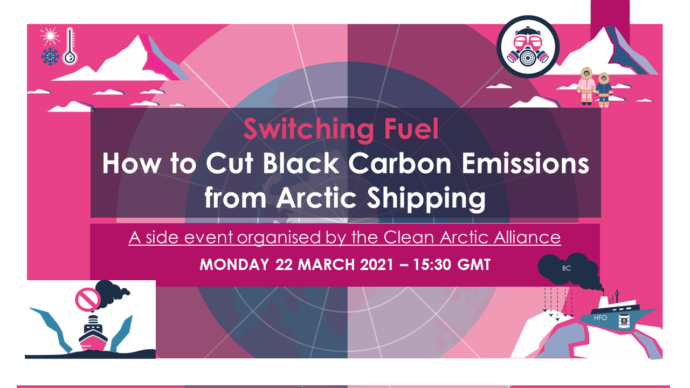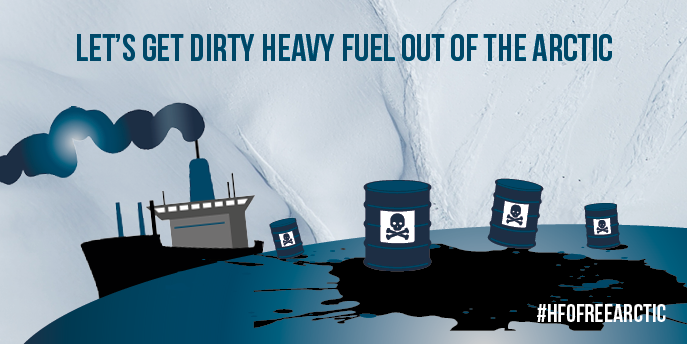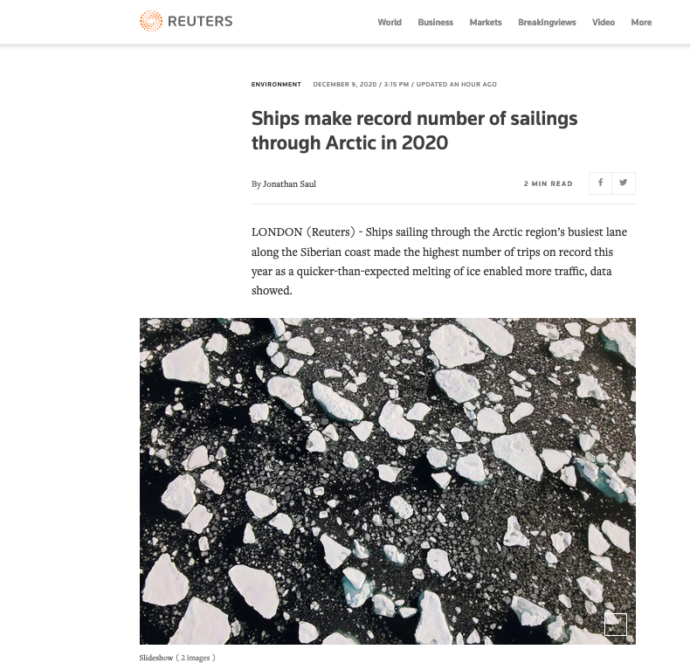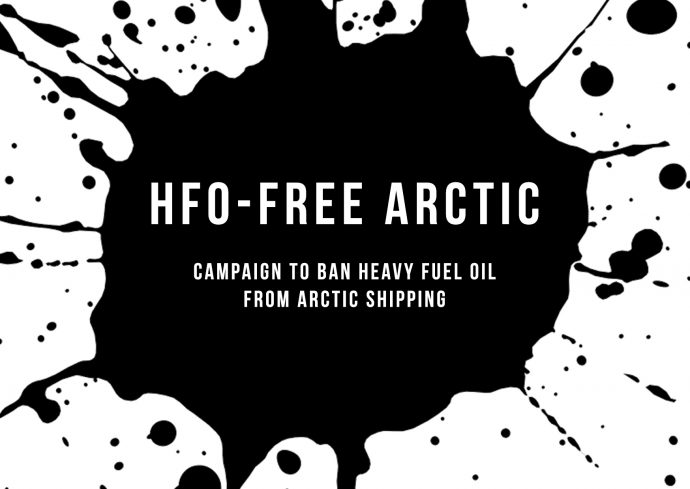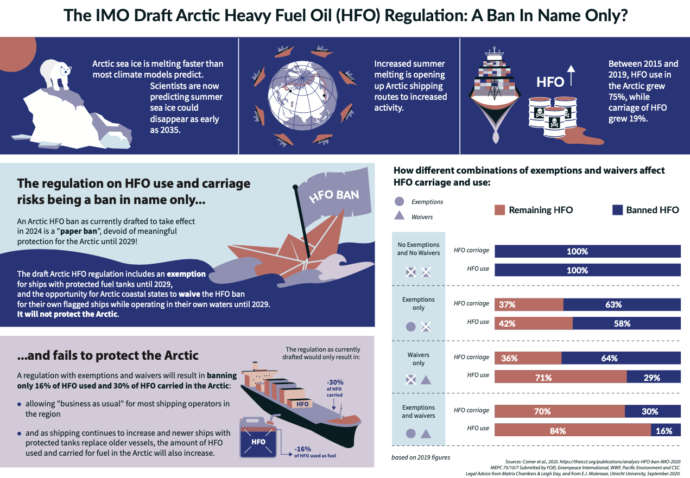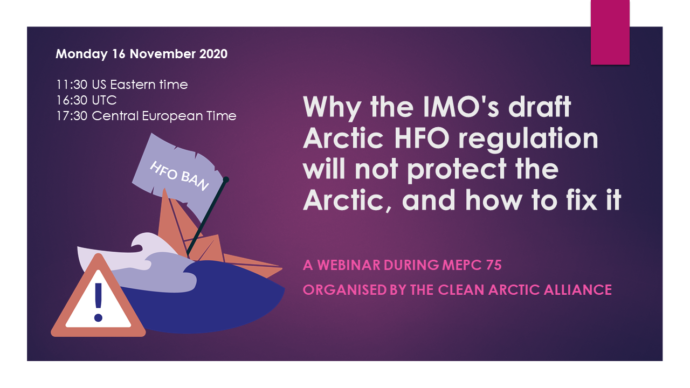Webinar Video: Switching Fuel – How to Cut Black Carbon Emissions from Arctic Shipping
Join us to find out how switching fuels can cut black carbon emissions from Arctic shipping and help eliminate the harmful impacts on health and the climate. An event organised by the Clean Arctic Alliance during PPR 8 – Monday 22 March 2021 – 15:30 GMT

